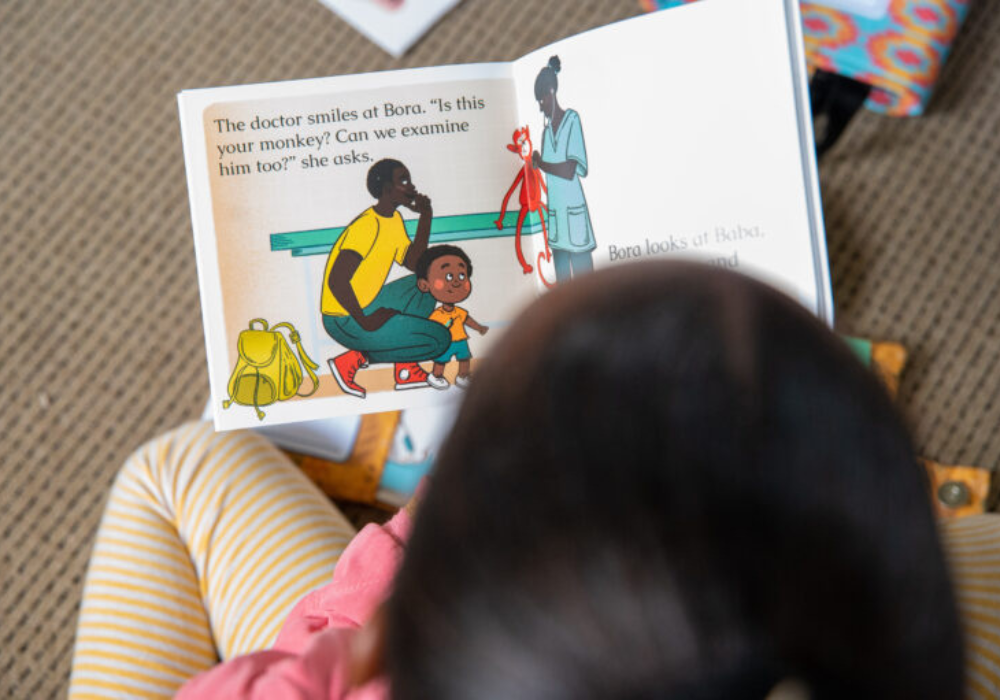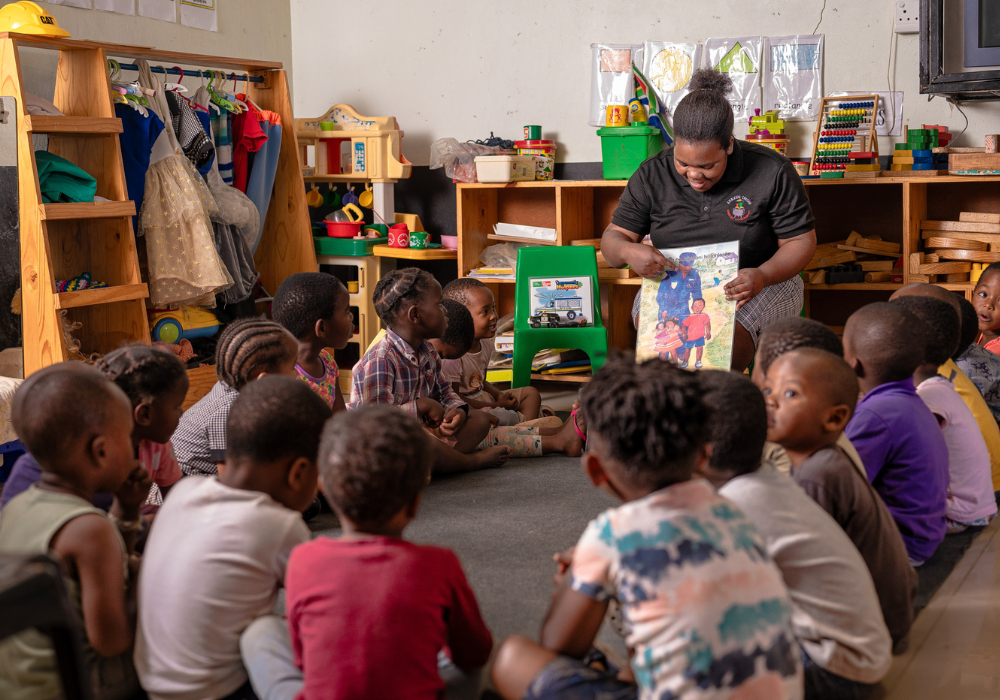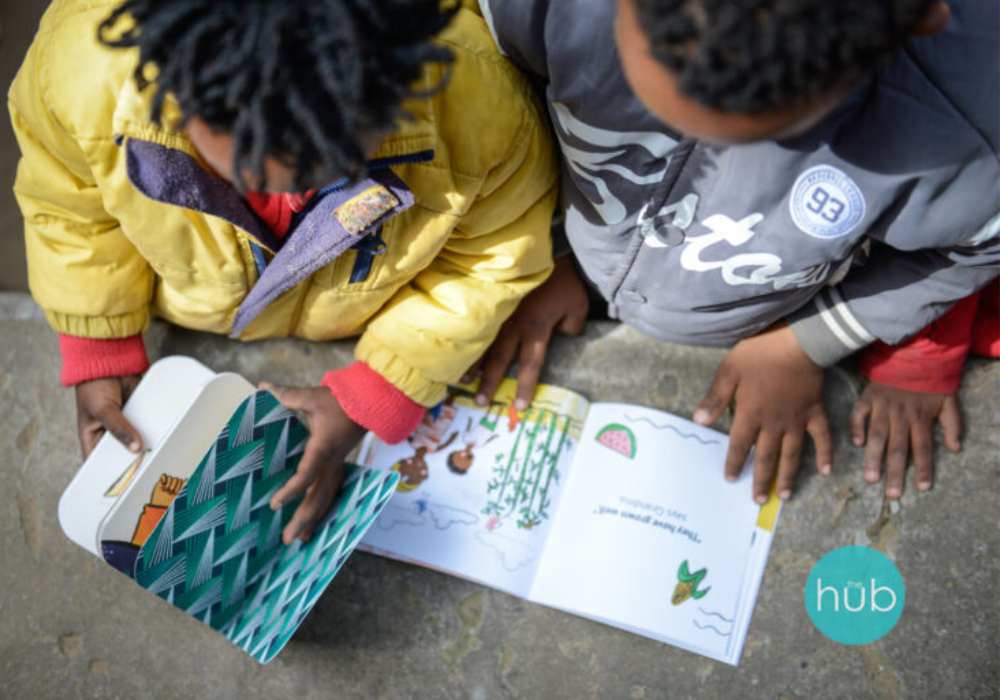Celebrating Our Heritage: Nkomazi Parents Foster a Love for Reading with South African Books
24 Sep 2024
This Heritage Month, we shine a spotlight on the parents of Nkomazi, who are sparking a lifelong love of reading in their young children using proudly South African books that provide stories that resonate with their own culture and heritage.
At the heart of this initiative is the Read and Play at Home program, a collaborative effort that champions the idea that local languages and cultural contexts are crucial for early literacy development. Jabu Mthembu-Dlamini, the Foundation's Community Programmes Lead based in Nkomazi, captures the essence of this initiative:
“Parents have a profound impact on their child's early development by dedicating time each day to read with them. The Read and Play at Home programme supports this by incorporating the family's primary and secondary languages and culturally relevant stories. This approach not only promotes cognitive and linguistic development but also strengthens identity, empathy, and academic success. Through such initiatives, parents can help their children flourish in a diverse and interconnected world.”

Since its inception in 2022, Read and Play at Home has empowered over 2,200 parents in Nkomazi with training, resources, and a treasure trove of books. The goal for 2024? To reach even more families, with plans to support an additional 1,574 parents.
Building bridges between parents and educators
Eden Mabila, an Early Childhood Development (ECD) practitioner in Nkomazi, has observed a remarkable transformation among parents:
“Parents now see the value of being actively involved in their children’s education from an early age. They also understand their role in supporting literacy and learning at home, which has led to better engagement in classroom activities and more enthusiasm from children towards reading. This shift in parental involvement is laying a stronger foundation for children’s literacy development.”

With this initiative, parents are not just spectators; they are active participants in their child’s learning journey. They recieve hands-on training about the value of reading and interactive play and carefully selected Book Dash books (two in their home language and one wordless book) that allows them to practice this at home with their child. The program includes ongoing support and follow-up to encourage continued engagement and assess the impact on child development.
Stories that resonate
Nomthandazo Mashele, a participating parent, shares her experience:
“My favourite Book Dash books are Toast and Lilanga Lelihle because my child can relate to the everyday experiences described in the books, like eating toast and playing with friends. My child now shares educational moments and initiates conversations about the stories we read together, extending this curiosity to other things they encounter in daily life, like the news and food advertisements. The Read and Play at Home programme has strengthened our relationship, opening new ways for them to connect. This shared learning experience has deepened our bond and broadened our communication.”

Through these shared reading experiences, parents are helping their children to not only develop literacy skills but also to foster emotional security and social skills.
The bigger picture
The benefits of this program are experienced by families in Worcester and Pongola, positively impacting 2100 and 2451 parents respectively since 2022.
The love for reading starts in a child's early years and is cultivated through playful engagement with books at their ECD centre and at home. By embracing our rich cultural narratives and engaging in storytelling, parents can empower their children to thrive in all areas - academically, socially and emotionally - in a dynamic and diverse country. So, whether a parent, caregiver, or ECD worker, each has a role to play in nurturing the next generation’s literacy and love for their heritage.
Because the stories shared as a family and together as a community are the foundations for creating better tomorrows for the young children in South Africa.